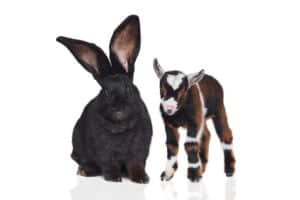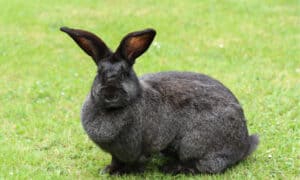Many people know that catnip impacts cats. That said, fewer people realize that the natural product is used as a food source for other animals. Is catnip safe for rabbits? The short answer is yes. Rabbits can safely consume catnip. That said, those who own rabbits as pets or provide care for these animals should know certain important facts before feeding them this product.
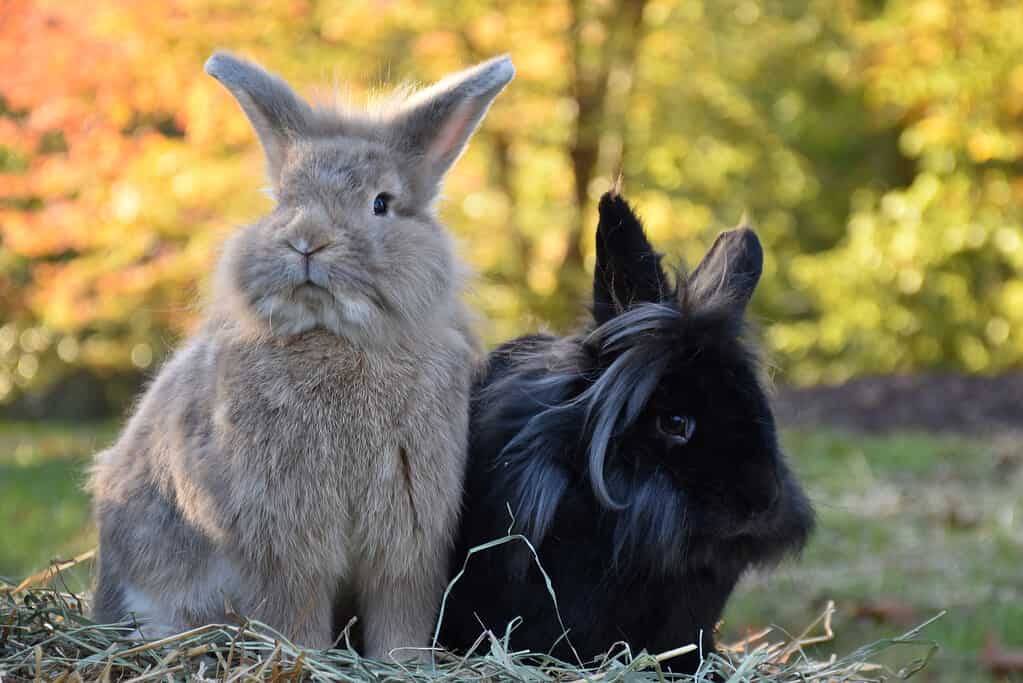
Catnip is not toxic to rabbits and is safe to feed them.
©JudyN/iStock via Getty Images
What is Catnip?
Catnip belongs to the plant kingdom and holds membership in the mint family. More specifically, scientists label the natural product Nepeta cataria. The herb sometimes grows as high as three to four feet high.
Catnip’s Impact on Cats
The plant earned a reputation in popular culture for the notable behavior many cats display after being exposed to or consuming the product. Catnip contains a chemical known as nepetalactone. This substance produces an aroma enticing to cats.
The smell causes a solid percentage of cats to exhibit hyperactivity. This manifests in noticeable actions such as excitement, increased movements, and mental sharpness. These episodes usually last anywhere from a few minutes to as long as a half-hour. Cat owners often give catnip to pets needing physical stimulation or those getting into mischief due to boredom or inactivity.
That said, every cat’s reaction is different. Some will demonstrate quick and major responses. However, a small percentage display no reaction at all. Furthermore, continued exposure to catnip limits its effect on some cats over time.
Most commonly, cat owners sprinkle catnip leaves into a cat’s food. That said, numerous cat toys contain the product.
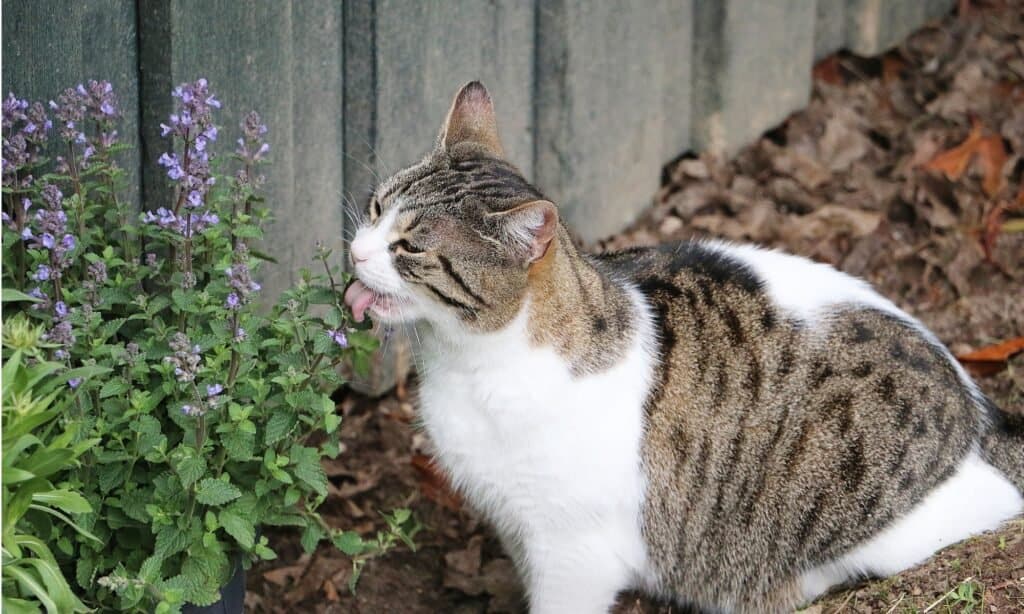
Catnip contains a chemical known as nepetalactone which produces an aroma enticing to cats.
©iStock.com/BiancaGrueneberg
Catnip and Rabbits
Veterinarians confirm that catnip is safe for rabbit consumption. Scientists classify rabbits as herbivores meaning that they eat only plant products. Rabbit owners and caretakers realize this fact limits the food the animals can safely eat and often wish to jazz up their diets with different-tasting plants. Many believe catnip accomplishes this task.
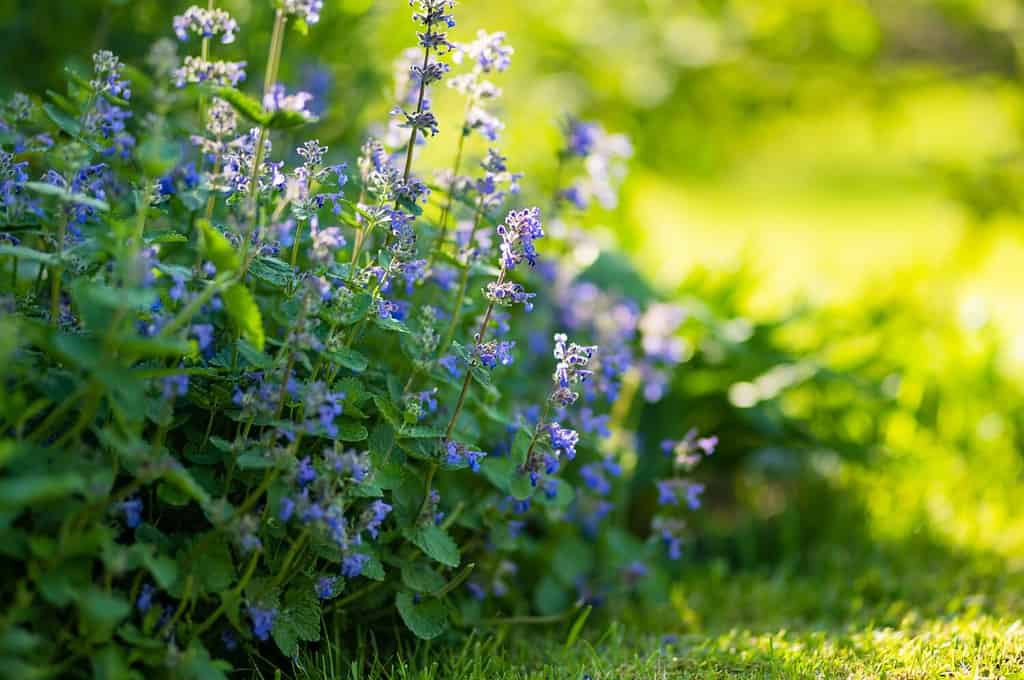
Catnip increases activity and excitement levels in many cats.
©MNStudio/Shutterstock.com
5 Things to Know Before Feeding Catnip to Rabbits
Prior to giving rabbits catnip or exposing them to products containing the plant, owners or caregivers should know five important facts including:
Avoid Dried Catnip
The plant’s dried variation tends to be quite small. Unfortunately, this proves problematic for rabbits. Tinier objects increase a rabbit’s choking risk. Additionally, dried catnip carries the potential to injure the inside of a rabbit’s mouth.
Not All Catnip Features are Safe for Rabbits
While the leaves and stems prove safe for rabbit consumption, seed heads are not. These tiny particles increase the animal’s chances of developing digestive issues.
Rabbits Should Not Consume Catnip While They Are Very Young
Veterinarians caution pet owners not to feed rabbits catnip until they reach 12 weeks old. A rabbit’s gastrointestinal system reaches maturity at this time and is better able to properly digest the plant product.
Rabbits Should Not be Fed Excessive Amounts
Pet owners are urged not to feed a rabbit catnip often or in excessive quantities. Such practices increase the animal’s risk of stomach upset.
Fewer Rabbits Respond Favorably to Catnip
Rabbits do not respond as favorably to catnip as cats do. A good number of rabbits find the aroma catnip produces too strong. Moreover, in certain cases, catnip makes rabbits calm and tame.
The photo featured at the top of this post is © stopovers/Shutterstock.com
Thank you for reading! Have some feedback for us? Contact the AZ Animals editorial team.





